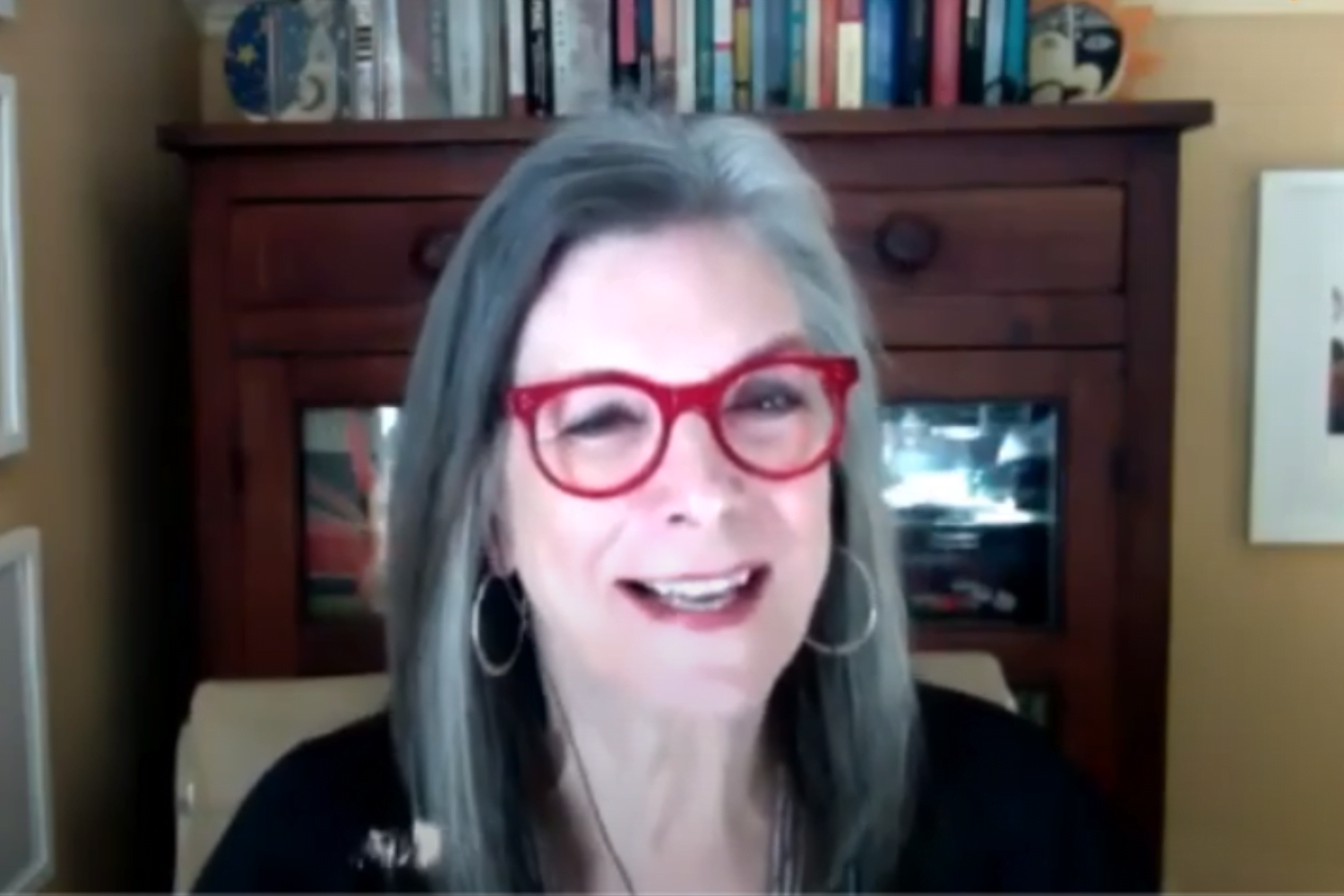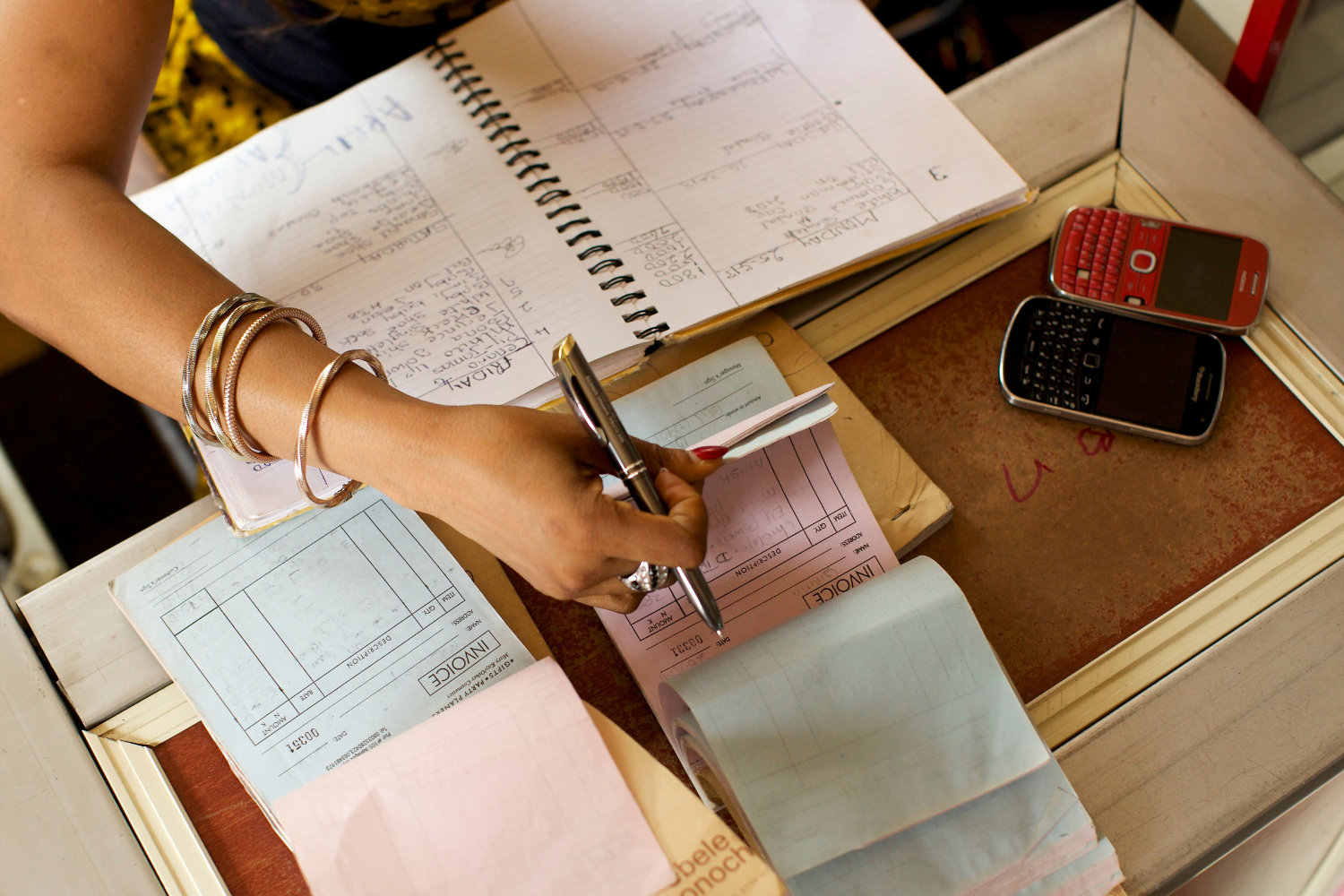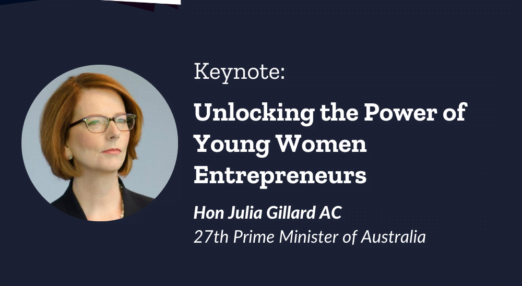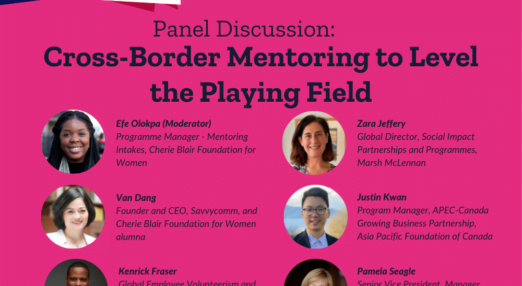Dr. Linda Scott on challenging gender stereotypes
Dr. Linda Scott on how gender stereotypes hold women-owned businesses back in procurement processes

Dr. Linda Scott is an author and Founder of Double X Economy, Power Shift Forum & Global Business Coalition for Women’s Economic Empowerment. She is also an Emeritus Professor at University of Oxford. Last year, as part of our 100,000 Women Campaign, we were honoured to have her join our Women Entrepreneurs Mean Business summit where she delivered a speech on how gender stereotypes hold women-owned businesses back in procurement processes:
“I’m really pleased to be able to talk to you today about the situation in global supply chains, and particularly the exclusion of women, and where that is coming out after the pandemic. Some of you will be aware that there was a fairly considerable effort to better include women in supply chains during the previous 10 years before the pandemic began, and now both informal and formal data that is coming out in the aftermath shows that that effort has taken a considerable hit. Some of the institutional players who were previously trying to play a reform role, such as some of the leading corporations, have pulled back now. Those who were the target of reform, particularly the banks, have gone back to their old exclusionary ways.

Gender stereotypes are playing a role in this backsliding by offering rationales to those who are weak-willed or intransigent. Three of them I have heard with regard to procurement are, for example, it’s ‘last in, first out,’ that’s the rule, and since the women were last in, they’re the first out. This is taking advantage of a common mantra in accounting that has to do with accounting for inventory, but it is often generalised as a handy excuse for what is happening in the economy, particularly to women. Ever since women were first beginning to come into the labour force in significant numbers, whenever there was any kind of a downturn, the women would be let go and the argument was: ‘Oh, last in, first out.’
This is the kind of thing that we simply need to learn to call out. We need to learn not to accept it as simply a rule of the universe; the way that business is done – it’s not! It’s an easy-to-mimic rule that most people don’t question, and so businesses can get away with it. We need to respond in this case, for instance, that there is an equally acceptable rule in accounting that says ‘first in, first out’, reflecting that which practice is adopted is a choice between two options. Predictably, the second accounting rule is never intoned as a mantra where women are concerned.
Read our report on gender stereotypes and their impact on women entrepreneurs
Download the report (2.9MB pdf)
DownloadAnother thing that I’m hearing is that resources are being moved to causes that are “more important”, in particular moving to climate change. This was already a problem before the pandemic, and the thinking under this, that is sometimes articulated but usually left unspoken, is motivational. That is to say that we need to be putting our money and our efforts against ‘important’ causes, like climate change, and not unimportant causes, like including women in the economy. Again, I think it’s important, although it’s tricky, to learn to push back on these kinds of things. It is not the case that women are unimportant to either the economy or climate, and there is nothing about excluding women and holding them subordinate that is going to help save the planet. This is a false dichotomy that we need to learn to blow apart whenever we hear it.
The thing that I hear though that is the most compelling, and the one that I think is the most true, is something that I heard from a Financial Times journalist early in the pandemic.
He said to me: ‘What I’m hearing is that helping women business owners is not really necessary. It’s a nice-to-have, but it’s not a must-have. Whereas helping men’s businesses is necessary in order to keep the economy going and get it back on track.’
Now, this idea that women are not necessary grows out of a kind of blindness where we don’t understand how important to the world economy and to world society women’s economic participation is. It grows out of the fact, and I’ve explained this in my book, that women’s contribution has not been counted, because we only count what is monetised. It grows out of the fact that women have been actively, structurally, excluded from economic participation for much of human history. This allows us to think that women are not important, even when we are. It means that policymakers are likely simply to have a blind spot that doesn’t allow them to look at gender, and to look at what could be gained by helping women and what will be lost if they are not assisted in a gender-appropriate way. For example, at the moment roughly 40 percent of GDP globally is contributed by women. Women have at this point very nearly an equal role economically with men, as far as labour goes. But their impact on the global economy is magnified because of their role in cultivating human capital, in other words, their role in raising children. In addition, because in most countries at this point women make virtually all the consumer decisions – 75 percent plus, in some countries as much as 85 percent – women are important to getting any economy on track and helping it remain stable and to thrive. That’s because they’re the ones that make sure children are fed, that people are educated, that they get the healthcare that they need – all of which are essential inputs to the modern economy.
What we see also at this point is that excluding women causes a lot of very negative impacts, so for example, keeping women out of land ownership, and keeping them away from a full and equal participation in the production of the food supply contributes to food insecurity, conflict, even war. In addition, not allowing women to have equal access to economic participation encourages disease and reduces access to healthcare for both women and children. One thing that I do want to call attention to, for this group in particular, and especially if you are involved in policy, is that I was fortunate to be asked by USAID recently to do a complete review of the literature and to write about the causal influence that gender inequality has on poverty. We can now say, with finality, that gender inequality is a structural, global factor that actually causes, as well as perpetuates, poverty. It’s not a symptom of poverty, it’s a cause, and anyone who would like to look into that, I would encourage you to google ‘gender inequality causes poverty’.
We can now say, with finality, that gender inequality is a structural, global factor that actually causes, as well as perpetuates, poverty.
Unfortunately, I was asked to write this piece as USAID because economists working in this area have been actively taught that economics is gender neutral, and that anything that any group experiences by way of inequality is a result of either their own poor choices or their own personal inadequacies. These are habits of thought that are going to require significant pressure from women and their advocates; from policy makers inside of governments and other institutions to be changed. We, at this point, have not only data, hard data, but truckloads of data, hard data and otherwise, seriously container-ships worth of data, that shows us that that kind of belief is simply untenable. Continuing to allow women to be excluded from the economy not only results in lost opportunity, but actively produces some of humanity’s worst scourges.
So, what we need to do to get women included better in the economy, including supply chains, is to make it important; is to make it something that is clearly standing toe-to-toe with climate change or any other cause in its essential relationship to global security and human well-being. Doing this means that we must begin holding the governments and the international agencies accountable in addition to the businesses.
Now, I have a lot of experience working with major corporations on supply chains and other issues of inclusion. But, I have to tell you, while I think they certainly need to be held accountable, we’re into a habit of always turning to the corporations for our solutions; always pointing our fingers at the corporations in terms of blame. In my experience, especially in working with corporations, is that many of the barriers that they encounter when they try to include women in their supply chains, are things that governments and international agencies not only could solve but would have to solve, because they’re the ones who are in charge. They’re the ones who have the authority in that particular domain. Not holding the governments and the international agencies accountable allows these structural factors that cause women to be excluded above and beyond the stereotypes.
Not holding the governments and the international agencies accountable allows these structural factors that cause women to be excluded above and beyond the stereotypes.
Let me give you an example: most people who work in women’s economic empowerment know that the global banking system is one of the biggest culprits in terms of holding women back. It’s hard to know exactly what the stats would be for reasons I’ll explain in a moment, but before [the pandemic] the best estimate is probably that women owned about 30 percent of global businesses and got only five percent of conventional business loans from banks. A new study that has recently come out from the World Bank, looking at the effect of the pandemic, says that actually that number has fallen by half, so if women were given five percent of conventional business loans before the pandemic, they’re down to 2.5 percent. This is something that shows that when the pressure is off, when people are allowed to turn back to the ‘normal way’ of thinking about and doing businesses, that we fall back into those exclusionary patterns. Yet, it’s simply the case that there is very little justification for the banks to behave in this way.
I discuss in my book a case study that I did in China with the bank there, where the bank argued that they shouldn’t have to include women among their business customers, that they did not currently have women customers and, in fact, that women never applied to their bank. So, they would tell you all kinds of stuff about how women made bad customers for banks, that they weren’t reliable, that they had too much attention to detail and worried too much about interest rates (both attending to detail and worrying about interest rates would normally be a good quality for a client). In particular, they would say that women don’t really care about business, they only care about children, and therefore they’re bad customers for banks. This kind of stereotype was used then to justify why they had no women customers. But, look more carefully at this: if they have no women customers, and women never applied to the bank, that means they had no data on women as customers. They literally did not know what they were talking about, and they were justifying everything they did on the basis of stereotypes.
These exclusionary barriers among the banks therefore are not just a function of women not having the guts to pitch up and apply for credit, and they’re not just about women not having enough information to apply for credit. They are about the active ignorance and resistance that comes from the banking system and the only way we’re ever going to get around that is if the governments and the international agencies start to get involved.

One way we see this involvement recently is a 2018 move on the part of the World Bank to start making their member banks in developing countries report their data broken out by gender. This is going to be slow to happen. In the developed world there are actually laws that were enacted in the 1970s that told banks that they could not collect and record their customer data by gender. While this policy was intended to keep banks from discriminating, in the end all it did was to give them a smokescreen behind which they could discriminate against women. Business loans are made in person, so in practice the banks could still discriminate because the person making the loan always knew the gender of the customer, but because banks were not allowed to collect data that would have proved exclusionary practices in the aggregate, the bankers could not be held accountable. What we need to do is to monitor the banks; to hold the banks accountable as well as to stimulate them to do the right thing.
The other stereotype mentioned about business and children [is] the excuse of childcare. This is probably the single most frequent excuse given for discriminating against women, no matter whether you’re in entrepreneurship, employment in the formal economy, or the informal economy. After the pandemic, we should be learning the hard lesson, the very clear lesson, that childcare is a form of economic infrastructure that the global economy needs to invest in. It’s the same as building airports or building roads, the same as building information systems.
If roughly 40 percent of your economy is under a specific limitation of not being able to participate because of childcare, then the obvious thing to do would be to invest in universal, affordable high-quality child care. This problem will not be solved until that gets done.
There are several other things that could be done. For example, one of the structural problems that women face in growing businesses is access to markets and access to capital. These things happen and are rooted in long-standing exclusions. But controlling the mobility of women and making their mobility unsafe, such that women are not able to go out and conduct business, because they’re either held at home or the streets are too dangerous for them to do so, interferes with their access to markets. So, working on access to public life and safety of movement is very important. That’s something only a government can do.
Similarly, women’s lesser access to capital is rooted in long-standing rules against their owning the major store of wealth in the world’s history – land. Globally less than 20 percent of the world’s landholders are female. That means that if banks are using land ownership as a predicate for lending money, which they do, particularly in the developing world, then there have to be ways created of establishing credit-worthiness other than pledging land. Governments and those who manage the banking system would have to step up and do that, that’s not just something that some corporations can pull up their pants and do.
If roughly 40 percent of your economy is under a specific limitation of not being able to participate because of childcare, then the obvious thing to do would be to invest in universal, affordable high-quality childcare.
Very often there’s a stereotype that women don’t know anything about business, and therefore they shouldn’t be doing business. I often see this used as a basis for cheating women, a rationale for charging them more for supplies or giving them poor customer terms. Systemic cheating on either materials costs or customer terms would necessarily mean that female entrepreneurs could not be as profitable as their male counterparts. This kind of thing, again, is something that could be regulated, and often even where it is against the law to do that it is not enforced.
One of the places where we see this phenomenon most obviously is in export and customs. Frequently, I hear the stereotype that women just don’t care about growth and that’s why they don’t export. Actually, almost certainly what’s happening is that women are being cheated at customs, bullied at customs – we know for a fact that government corruption falls more heavily on women than on men. The evidence that I’ve seen is that actually goes double for customs agents, that we’re not only seeing extortion but we’re seeing demands for sexual favours. This is something that definitely hits women more than men, and it’s actually a fairly simple fix I think. If you were to appoint an ombudsman at key ports (usually there are only one or two ports in a developing country), you would be able to go with those women and make sure that they are treated fairly.
We see all kinds of other stereotypes that come from the NGO world. For example, recently, when the WTO was approached with the declaration to include women better in world trade, we heard a lot of supposedly progressive sources saying that those advocating for the reform only helps the rich, and anyway women should not be corrupted by engaging with the world economy. This attitude represents ignorance and resistance that we need to not put up with either. It is not the case that economic reform only helps the rich, and those who work in economic development know very well that the female among the poor are hurt in more distinct ways than men among the poor. These things need to be resolved. As long as we’re saying that women should be excluded from the economy because they’re too pure to be corrupted, we’re going along with a very long-standing cultural stereotype globally that says that women should not touch money because it’s too dirty. This is something we simply cannot continue to say.
As long as we’re saying that women should be excluded from the economy because they’re too pure to be corrupted, we’re going along with a very long-standing cultural stereotype globally that says that women should not touch money because it’s too dirty.
In the work that I’ve done over the years with corporations working on this, the one thing we all saw was the need for a holistic approach to reform. This is something that can be done through the international trade agreements that the WTO and others can facilitate. The most prominent example is the one between Canada and Chile, where they made an international trade agreement in which each assures the other that they’re going to not only work on this holistic need for reform, that will allow women to participate in world trade, but also that they will guarantee that each other will enforce the laws, the equality laws that they already have on the books, to achieve gender equality.
So what we need here is advocacy. Advocacy that is not only aimed at business, but is aimed at governments and international agencies. We need to be brave. We need to have courage. We need to not take on blame for this system ourselves. We need to call out bigotry when we see it. We need to volunteer to help efforts that go on around the world trying to better include women in supply chains. If we can’t do that, we need to give money to the institutions who do that, including the Cherie Blair Foundation for Women, and we need to look for ways that we as individuals on an everyday basis can help. I promise you there is something that everyone can do about this and we will all gain a better and more peaceful, more secure, more stable and more equal world society if we do. Thank you.”
I promise you there is something that everyone can do about this and we will all gain a better and more peaceful, more secure, more stable and more equal world society if we do.
Read more from the Women Entrepreneurs Mean Business summit
-

Hillary Clinton on women’s equality and breaking glass ceilings
Hillary Clinton and journalist Barkha Dutt discuss breaking gender stereotypes and empowering women entrepreneurs.
Read more
-

Hon. Julia Gillard AC – Unlocking the Power of Young Women Entrepreneurs
Keynote speech by Hon. Julia Gillard AC for the Women Entrepreneurs Mean Business summit, exploring and challenging the gender stereotypes holding women entrepreneurs back from success and equality. Because we won’t wait 250+ years for women to have economic equality.
Read more
-

Panel discussion: Cross-Border Mentoring to Level the Playing Field
A panel discussion from the Cherie Blair Foundation for Women’s Women Entrepreneurs Mean Business summit, exploring and challenging the gender stereotypes holding women entrepreneurs back from success and equality. Because we won’t wait 250+ years for women to have economic equality.
Read more
